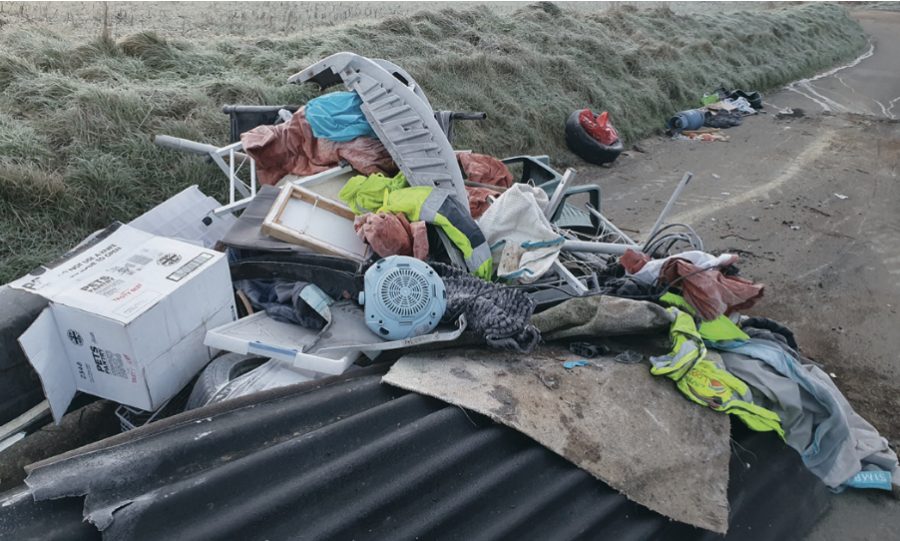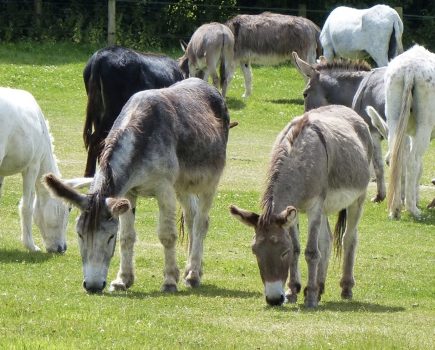William Blake’s “green and pleasant land” is under siege from fly tipping on a mass scale. Land and Business Association (CLA) President Victoria Vyvyan says “Report, report, report to highlight the extent of the crime”.
This is not just litter blotting the landscape, this is organised crime; tonnes of household and commercial waste dumped which can often be hazardous – even including asbestos and chemicals – endangering farmers, wildlife, livestock, crops and the environment.
The latest figures from Defra show that there were more than one million fly tipping incidents recorded on public land in England last year, bringing the total to five million cases in five years. But huge numbers of incidents occur on privately-owned land, painting an even more damaging picture of the financial burden and environmental impact fly- tipping brings.
Farmers and landowners are responsible for removing fly tipped rubbish. The CLA estimates that our members pay on average £1,000 to remove waste. This is not a victimless crime – in some cases they have paid up to £100,000 to clear up other people’s mess or risk facing prosecution themselves, a fundamental injustice.
While courts can sentence offenders to prison or unlimited fines, prosecutions are rare and criminals clearly do not fear the system. Frustratingly, the latest figures also show that the number of fixed penalty notices issued was 73,000 in 2022/23, a decrease of 19% from 91,000 in 2021/22.
The CLA is calling for local authorities to help clear fly-tipping incidents on private as well as public land, and for the various enforcement agencies to be properly trained and resourced.
We have made some progress. Maximum penalties for fly tipping have doubled, and the fees which some local authorities charge for disposing of DIY waste at recycling centres were abolished in January. Around a third of local authorities were still charging for household DIY waste last year, with fees of up to £10 for an individual item such as a sheet of plasterboard.
Hopefully if it is cheaper and easier for people to get rid of their waste they will be less likely to dump it illegally. We should be making it as simple as possible for people to dispose of rubbish and unwanted items responsibly, so the removal of any cost barriers is welcome.
But landowners also need help with the fly tipping of industrial or building waste – some of which could be contaminated. Some local authorities offer advice and financial assistance to help with the costs of removing fly-tipped rubbish. Please check whether your local authority offers this service as nationally it is under-used.
CLA members are often reluctant to report incidents of fly tipping as they have suffered from poor experiences when no action has been taken. However, we encourage all farmers and landowners who are affected by fly tipping to report incidents to the police, local council and the Environment Agency. Reporting everything helps these agencies to plot incidents and identify ‘hot spots’ to focus their resources on in the future.
If nothing is done, Blake’s pleasant land will continue to be blighted by dumped fridges and mattresses, asbestos and building waste, and it won’t be the criminals paying the price.
This article was taken from the April 2024 edition of The Country Smallholder. You can buy the full issue here.
To receive regular copies of The Country Smallholder magazine featuring more articles like this, subscribe here.
For FREE updates from the world of smallholding, sign up for The Country Smallholder newsletter here.








